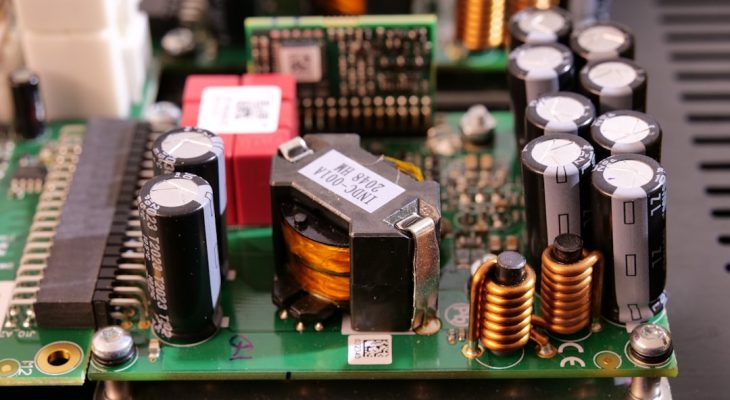The Hewlett Packard 1791 motherboard is an integral component found in various prebuilt HP desktop systems. While it might not be as widely recognized as enthusiast motherboards from brands like ASUS or MSI, the HP 1791 delivers reliable performance and crucial compatibility with a selection of processors. For those looking to upgrade or understand the full potential of this motherboard, understanding its CPU compatibility is essential.
Whether you’re planning an upgrade or just want to maximize system capabilities, knowing what processors will work with the HP 1791 motherboard empowers you to make informed decisions and get the most from your hardware.
Overview of the HP 1791 Motherboard
Designed by HP for its desktop series, the 1791 motherboard follows the microATX form factor, making it compact yet functional. It’s intended for everyday computing needs, from basic productivity tasks to some moderate multitasking and content consumption.
The board is not marketed for DIY builds but is commonly found in HP Pavilion and HP Envy desktops. As such, it’s geared toward providing a stable and efficient user experience without the need for extensive customization or overclocking options.
[ai-img]hp 1791 motherboard, microatx, desktop pc[/ai-img]
Supported Processor Families
The HP 1791 motherboard features an LGA 1200 socket, which determines its CPU compatibility. This particular socket supports multiple processor families from Intel, predominantly from the 10th and 11th generations of Intel Core processors.
Here are the major CPU families supported by the 1791 motherboard:
- Intel 10th Gen: Core i3, Core i5, Core i7, and Core i9 processors such as i5-10400, i7-10700, and i9-10900
- Intel 11th Gen: Core i3, Core i5, Core i7, and Core i9 models including i5-11400, i7-11700, and i9-11900
- Intel Pentium and Celeron: Entry-level CPUs like the Pentium Gold G6400 and Celeron G5900 are also compatible, making the board a solid choice for budget builds
It’s important to check your specific system BIOS version, as certain CPUs—especially from the 11th gen lineup—may require a BIOS update for full compatibility.
Chipset and Its Role in Compatibility
The chipset embedded in the 1791 motherboard is the Intel H470. It offers decent features for mainstream users, including support for:
- PCIe 3.0 (not 4.0 – which is available on newer chipsets like Z590)
- USB 3.2 Gen 1 support
- Up to 128 GB of DDR4 RAM (in 4 slots, depending on the chassis configuration)
The H470 chipset ensures decent performance for day-to-day use while balancing power efficiency and thermal output. However, users will not find support for CPU or RAM overclocking, as this is a limitation of the H-series chipset family. If you’re looking for performance tuning, you’ll need to consider boards with a Z-series chipset instead.
Real-World Performance and Use Cases
When paired with a suitable processor, the HP 1791 motherboard is more than capable of handling a variety of tasks. Here’s what you can expect:
- Office Productivity: Seamless operation with word processing, spreadsheets, and video conferencing
- Multimedia Consumption: Smooth performance for HD streaming, light video editing, and audio playback
- Light Gaming: When used with an appropriate GPU and a mid-range Core i5 or i7 CPU, it can support light to moderate gaming with ease
[ai-img]intel processor, desktop pc, workstation performance[/ai-img]
Upgrading Considerations
If you’re thinking of upgrading the processor on a prebuilt system with the HP 1791 motherboard, it’s important to consider the following:
- Power Supply: Higher-end CPUs may require more power. Ensure your PSU can handle the upgrade.
- Cooling Solutions: Some processors may generate more heat. A third-party cooling solution might be required.
- BIOS Updates: Always check for BIOS versions to ensure compatibility with newer CPU models.
It’s recommended to consult HP’s official documentation or customer support before committing to a processor upgrade.
Conclusion
The Hewlett Packard 1791 motherboard may not carry the flash and customizability of enthusiast-grade boards, but it presents dependable performance and solid CPU compatibility within its design limits. With support for Intel’s powerful 10th and 11th generation processors, this motherboard is well-suited for users aiming for productivity and moderate performance in a compact, OEM setup.
If you own a system with this motherboard or are considering buying one, rest assured that a wide range of CPUs are available to help tailor the system to your individual needs.
[ai-img]intel lga 1200 socket, motherboard pins, cpu installation[/ai-img]





